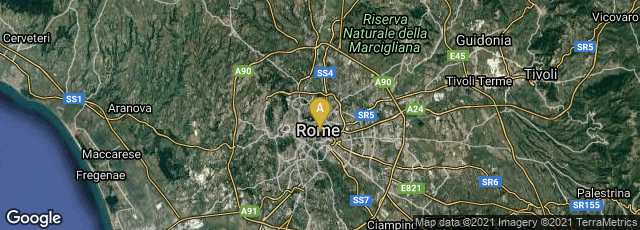

"Bookdealers, like many businessmen in Rome, tended to be freedmen, men of low social status. We come across a few names: the Sosii, for instance, who worked with Horace; Dorus, who Seneca says handled Livy; and Pollio Valerianus, the freedman Secundus, and Trypho, who deal with the books of Martial. They were, in simple terms the owners of small shops that dealt in luxury items. Perhaps as significant, they apparently only handled current literature and did not sell older works.
"Their business was conducted at the retail level: each bookdealer made the copies he sold. There was little or no distribution system to support the individual shop-owner and therefore, virtually no broad-based geographical distribution except on the individual level. If a bookshop owner in a provincial city sold a copy of a book, it implies that he had made that copy, not that he had bought a large number of copies from a Rome-based distributor.
"Most of the copies bookdealers sold were probably made at the specific request of a customer. The shop-owner merely needed to have on hand or to acquire exemplars of various texts from which he could make copies as necessary. A stock might be maintained of some texts . . . .
"We have no idea at all how many copies of a work might be made. A famous letter of Pliny mentions that Regulus had one thousand copies made of his eulogy for his son, but that is an unusual kind of text and Pliny thinks the number excessive and in bad taste. The question is actually close to meaningless in a world of individually made copies, since the number of copies would increase directly in proportion to the number of readers who wanted one and was not related to the number made at any particular time.
"Nor do we know how the individual copies were made. The most common method was undoubtedly having slaves make one copy after another from a master copy, as probably happened with Regulus' one thousand copies of his eulogy of his son. Various other methods have also been suggested. To extrapolate the pecia system back in time, a text might be divided into sections which would then be passed out to a number of different copyists. Alternatively, one person mght dictate a text to several others, who would write it out, thus producing an economy of time. Our modern insistence on economies of speed and scale, however, makes it difficult for us to keep in mind that such economies did not necessarily motivate the Romans.
"Book prices in bookstores also elude conclusive discussion, since they appear only very occasionally in the surviving sources. For example, as we have seen, Martial mentions that a deluxe copy of one of his books costs five denarii. The basic points, however, reduce the importance of the question. First, book prices would not have concerned the large majority of the population of the Roman world for the simple reason that they could not read. Second, the economic structure of that population – with a very small number of very wealthy people, a very large number of very poor people, and no significant middle class in the modern sense – put books at any price out of most people's reach. Third, as we have seen, the booktrade was merely an ancillary system of circulation beside the private channels that probably supplied the vast majority of literary texts. In short, not many people owned books in the first place, and, of those who did, not many bought them at bookshops.
"More tantatlizing questions are who patronized bookdealers and why. The answer may lie in the fact that Roman bookdealers were not in competition with the private channels of circulation in which so much of roman literature moved. If a Roman could acquire a text through those private channels, there was no reason for him to buy from a bookdealer. Neither Cicero nor Pliny, for instance, two of our major sources for the circulation of literary texts, ever mentions going to a bookshop. This, of course, does not prove that they never visited such a shop, but it may suggest that they obtained any texts they wanted through their friends. if a reader's circle of friends included neither the author of the text nor someone who owned a copy, then a bookstore might provide a helpful service. Catullus, for example, says that he will torment a friend by buying books of bad poetry and giving them to him (14.1-20). The joke may be based not only on the low quality of the poetry but also on the implication that the poets he mentions were so terrible that no one in his circle would know them or own a copy of their poetry.
"Since even the elite used bookstores as gathering-places and since booksellers put up advertisements on their doorposts, the shop would expose the work of unknowns to the literary upper crust. That exposure might conceivably and eventually produce social contact, which at least theoretically, might provide a way to break into the concentric circules of circulation and friendship and might even result in the discovery of a patron. Monetary gain directly from the sale of copies was not a factor.
"Other advantages have been suggested by modern scholars but are overstated. First, a bookstore was a place to send people who wanted a copy, as Martial sends his obnoxious Quintus, to whom he does not want to give a gift copy and with whom he does not want to acknowledge the degree of friendship that would imply. This, however, would only be done in awkward situations, not as a common practice. Second, bookshops have been thought to provide some safeguard for the accuracy of the text, at least early in its circulation, although the relatively unregulated circulation of texts would substantially limit this advantage.
"The Booktrade appears to become more important during the first century A.D., so that by Pliny's time it appears to have become an accepted method for the circulation of literature, although by no means the only method. Martial, as we have seen, often mentions the dealers who handle his books. . . . By Pliny's time, at least some authors thought it appropriate to give a copy of a work to a bookseller, who could then make and sell copies if anyone wanted them. Even if bookshops did become more important, however, private channels did not lose their importance. Such channels wold have continued to serve the literary needs of the established literary and social élite and would also have continued to provide non-literary works such as commentaries and lexica.
"The increasing importance of bookshops may be due to several factors. First, authors in Pliny's time may have wanted to reach further beyond the narrow circles of their own friends and their friends' friends. It would be misleading to think of this as an increase in author's ambitions, since this might seem to imply that earlier writers were men of modest ambitions. Rather, the change may have represented a somewhat broader conception of the potential audience for a literary work. Even so, wider distribution does not imply an enormous increase in the number and diversity of the reading public, since the potential audience remains the intellectual aristocracy. The change would still be profound, nonetheless, since it implies the partial freeing of literature from the bonds of friendship.
Second, a larger role for bookshops may reflect the emergence of a relatively new type of Roman writer. For old Roman writers, literature was always seen as merely one facet of the life of an aristocrat, albeit a very important one. Althought writing and reading undoubtedly affected their social relationships, those relationships were also based on other ties such as politics, marriage alliances and family traditions. For the newer writers such as Martial, however, arriving in Rome from abroad, lacking the ties of politics and the other elements of aristocratic friendship, literature provided a point of access to the aristocracy, a way of making contact with the elite. From them ltierature played a functional role in addition to its earlier one. Any financial advantage, however, came from the well-established system of patronage.
"Third, since, as has been argued above, bookshops enjoyed no special status above that of any luxury shop, that very commonality of commercial status may hint that literature was becoming something that could be bought and sold like perfume or expensive fabric. Since literature had been and remained a symbol of social status, its reduction to a marketable commodity may indicate a weakening of the hold of the traditional aristocracy on the control of access to social status. In earlier Roman society, one had to be a member of an aristocratic group to acquire access to works that circulated primarily with that group. In this later period, bookstores made it at least theoretically possible for access to literature to precede and perhaps even to facilitate access to certain refined circles.
"Yet, for all these suggestions, Roman literature remained the preserve of the aristocracy except in oratorical events and public performances. If bookshops helped literature move out of the strict control of aristocratic groups of friends, they actually did so only to help outsiders gain access to those élite circles" (Raymond J. Starr,"The Circulation of Literary Texts in the Roman World," The Classical Quarterly 37, No. 1 [1987] 213-223, quoting from 219-23.) Note that I could not include the approximately 30 footnotes associated with this quotation.